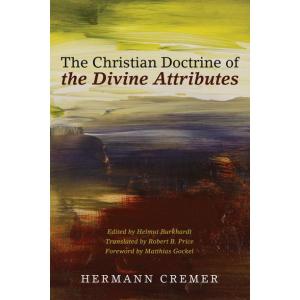Cremer, The Christian Doctrine of the Attributes of God: 2. The Righteousness of God, pp. 29-43
This is an invitation to comment for those who have read this portion of the book. Others may ask. In about one week I will comment on the second half of this portion—pp. 43-47. I am going slowly now so you can re-read as needed. I usually re-read before commenting. This section is about The Righteousness of God.
As before, with the holiness of God, Cremer rejects much of traditional Christian thought about God’s righteousness and ours. He believes and says that too much of it has focused on righteousness as the highest virtue, something he thinks derives more from Greek thought than biblical religion. He also rejects the idea that righteousness is God’s punitive justice, also something he believes derives more from Greek thought than biblical thought.
Cremer points out what he regards as the awful result of these misunderstandings of God’s righteousness: “Christianity came to be seen almost entirely as a new law.” (34) In this I find some vindication as in The Story of Christian Theology I said as much about a defection from the full gospel that began to happen in the early church after the apostles.
Cremer repeats his basic axiom about the attributes of God known only though revelation: “Righteousness, like holiness, is an attribute of God, of which one can have no idea apart from revealed religion.” (31) “For it is in showing grace that God is experienced as judge and as righteous.” (31)
Cremer insists that God’s righteousness and God’s grace and forgiveness not be separated or place in any tension. God’s righteousness is manifested precisely in his forgiving grace for the elect. And election is not based on any moral achievement; it is sheer gift.
Cremer’s biographer reports that he was an advocate of social reform. On pages 38-39 he delves into the OT prophets and preaches that their idea of God’s righteousness was his defense and deliverance of the afflicted and oppressed. On page 40 he asks “How can a sinner be righteous?”
Then things get complicated. So, here, I will summarize what I understand Cremer’s answer to be. First, a person or group is righteous when he is/she is/they “who by their conduct rebuke the injustice of others, and so provoke violence against themselves.” (40-41) Also, “He is righteous who has received justice.” (41) How does one receive justice? Only from God through election. “In its election, and not in its conduct, Israel has an indisputably righteous cause, against which no one can rise up, for who wants to dispute with YHWH?” (42) Righteousness is “not moral faultlessness but holding fast to God.” (42-43)
The “upshot” seems to be that God’s righteousness resides precisely in his electing and forgiving grace and all that it entails.
Does Cremer’s emphasis on election mean that people are not responsible for their own salvation? He says not: “We are responsible for the state of our own salvation.” (30) Election, then, does not mean automatic salvation; it means God’s choice to save. Who, then, is elect? So far, Cremer does not answer that, except “Israel.” But it is fair to say that he does not mean that every Israelite is saved simply by election of the people and nothing else.
Brunner had the answer to this. To be elect is to believe in the God of election, to trust in him. Barth argued that all people are elect, but he acknowledged that the status of “elect” can be rejected if not lost.
The achievement of this part of a chapter is that Cremer separates “righteousness” from “moral perfection” even in God (although he does not deny God’s moral perfection). God is righteous in his election, judgment, grace, and salvation, apart from the moral law. This is what God can do and in doing it he reveals his unique righteousness to all.
*Note: If you choose to comment, make sure you have read these pages. If not, you may ask a question. In any case, keep your comment relatively brief (no more than 100 words), on topic, addressed to me, civil and respectful (not hostile or argumentative), and devoid of pictures or links.*














